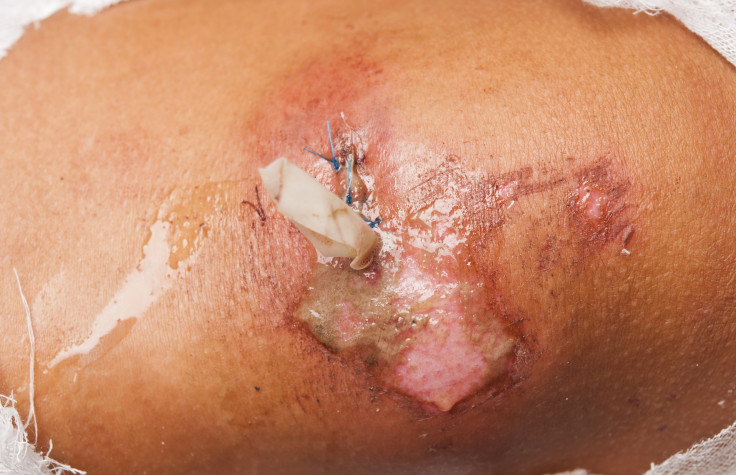Binge Drinking Makes Wounds Heal Slower; Reduces Number Of Infection Fighting Cells In Our Immune System

People like to drink alcohol, there is no denying that. There are few cultures on the planet where alcohol isn’t a staple at most celebrations and gatherings. In 2012, a survey of U.S. adults aged 18 and older revealed that 87.6 percent of people had drank alcohol at some point in their lives, 71 percent had drank in the past year, and over half the people surveyed had drank in the past month. Binge drinking, on the other hand, is a dangerous habit that is defined as having five or more alcoholic drinks during one occasion. According to The National Institute on Alcohol Abuse and Alcoholism, nearly a quarter of the American population admitted to binge drinking in the last 30 days. For those who binge drink while injured, it’s a common observation that wounds take longer to heal. A recent study has found that this is because heavy alcohol use lowers levels of beneficial immune system cells, inhibiting your body’s ability to heal itself.
The study was carried out by researchers from Loyola University in Maywood, Ill., and published online in Alcoholism: Clinical and Experimental Research. In the study researchers exposed wound-healing mice to either alcohol or a saline solution. Based on the press release, researchers replicated a typical binge drinking pattern in the mice that were given alcohol for three days of heavy drinking, after which they drank no alcohol for four days, and then continued drinking heavily for another three days. The scientists mirrored the mice’s blood alcohol level to be about twice the legal limit for driving.
Results from the study showed that binge drinking caused significant reductions in levels of immune system cells that play an important role in healing wounds. These cells, called macrophages, clear away bacteria and debris, and in turn protect us from infections. According to The Huffington Post, the study also found that binge drinking also lowers the production of a protein which recruits macrophages to the wound site. On top of this, alcohol was also found to reduce levels of cathelicidin-related antimicrobial peptide, a protein on the skin’s outermost layer that kills bacteria. “Together these effects likely contribute to delayed wound closure and enhanced infection severity observed in intoxicated patients,” explained authors of the study, in a press release.
This study will help scientist better understand alcohol’s effect on the human body, especially in regards to wound healing. In the United States, 20 to 40 percent of all hospitalized patients have drinking problems. Alcohol increases the risk of infections in hospitals, including surgical site infections. Each year there are 800,000 deaths related to alcohol, which make it the third most preventable death in our country. Globally, it is the number one leading risk factor for premature death and disability in people aged 15 to 49.
Source: Curtis B, Hlavin S, Brubaker A, et al. Episodic binge ethanol exposure impairs murine macrophage infiltration and delays would closure by promoting defects in early innate immune responses. Alcoholism :Clinical &Experimental Research.2014



























